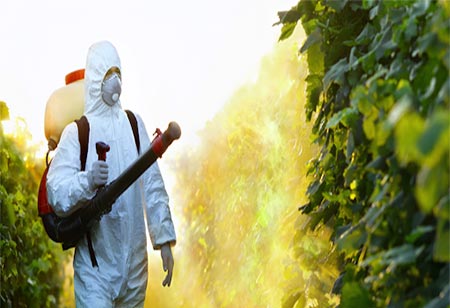As modern day agriculture is increasingly demanding an alternative to chemicals for mitigating diseases, pest, and enabling sustainability, biopesticides is what today agriculture industry needs, when it comes to controlling pests (whiteflies, thrips, aphids, etc.), diseases and fungi that are hazardous for crops. There has been alarming increase in the toxicity and poisoning due to the use of synthetic pesticides which is leading to severe environmental pollution. If we talk about India, it is a highly agriculture intensive country with significant number of population depending on it. Hence, a sustainable approach with eco-friendly agricultural practices has become the utmost need for the agriculture industry to survive, thrive
and feed the ever increasing population of India.Moreover, it is more critical if we look at the amount of crops that is getting wasted in India due to faulty practices. Hence, biopesticides will be fully aligned with rational, sustainable and eco-friendly agriculture practices, and will not only provide significant benefits to growers, but will be very beneficial for consumers as well, in terms of health; offering a natural protection for crops and helps in organically improve the crop quality and yield.
Furthermore, it also helps in resistance management strategies and can also be integrated with pest management program for mitigating pest. Moreover, it also allows pest insects to naturally play their important part in controlling pests. While food and environmental concerns are increasing day by day, biopesticides will be a game changer for agriculture players in controlling pest in an eco-friendly method and help sustain quality of crops and soil. All these factors are contributing to the significant demand of Biopesticides in today’s market.
There are three categories of biopesticides, namely, biochemical, microbial pesticides and plant-incorporated protectants (PIPs). Firstly biochemical helps in controlling pests through non-toxic mechanisms as it is a naturally occurring substance. Coming to microbial pesticides, it comprises of micro-organisms including fungi, bacteria, protozoans, and viruses which forms an important and active ingredient in controlling insect pests. And lastly there are plan-incorporated protectants (PIPs) which are produced naturally through genetic modification of plants.
 Magazine
Magazine
